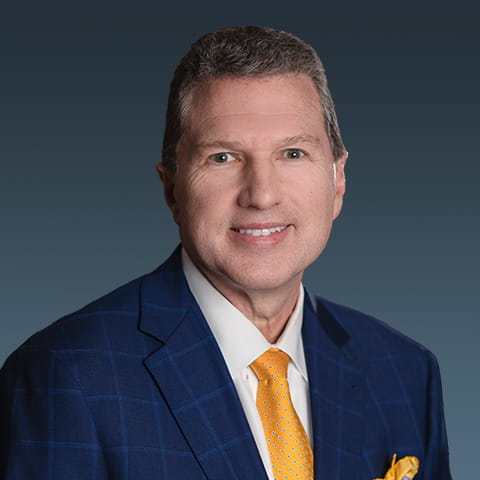Our solutions are tailored to each client’s strategic business drivers, technologies, corporate structure, and culture.
Executive Order reshapes NIL rules for college athletes
New NIL rules ban pay-for-play deals. Learn what’s still allowed and how athletes can protect their income.
College athletics has been in a new era since the NCAA allowed athletes to profit from their Name, Image, and Likeness (NIL) starting in 2021. NIL income quickly transformed the lives of thousands of student-athletes, many of whom began earning five-, six-, and even seven-figure deals from brands, sponsors, and NIL collectives. But a dramatic shift is now underway.
On July 25, 2025, President Donald Trump signed an executive order banning third-party “pay-for-play” payments in college athletics. While the full legal impact is still being assessed, this action could disrupt how athletes earn money, how schools recruit, and how NIL deals are structured going forward.
This change affects:
- College athletes currently earning NIL income
- High school athletes preparing for the college recruitment process
- Parents, agents, and financial advisors of athletes
- University compliance departments and collectives
- Tax professionals guiding athletes on NIL income
If you’re in the business of helping athletes make smart money decisions, now is the time to understand what this means – and what to do next.
What’s targeted, what’s allowed
Here’s the practical interpretation:
- What’s being targeted:
- Booster-run NIL collectives that offer athletes large payments for committing to or transferring to a school
- Deals that tie money to on-field performance, school attendance, or recruitment
- Structures that essentially act as salary systems outside of schools
- What’s not being targeted:
- Direct brand endorsements, such as working with a sneaker company, social media influencer deals, or running your own business using your name/image
- Appearances, autographs, camps, or speaking engagements – assuming they’re structured legally and not tied to performance or school choice
Why it’s a big deal
Many NIL deals today are indirect pay-for-play. Boosters and collectives pool money and offer athletes monthly stipends with limited deliverables. If those deals are now illegal, many current and future agreements may violate federal policy, creating risk for athletes and programs alike.
Therefore, we could see:
- NIL collectives forced to shut down or restructure
- Major reduction in guaranteed upfront money to athletes
- Athletes and their families needing to review contracts, report income differently, or even refund payments
- Increased enforcement by the NCAA or federal agencies
What college athletes should do now
Athletes need to treat their NIL income like a business. Here’s what athletes should be doing:
Business and legal steps:
- Review all NIL contracts: Make sure they are tied to legitimate deliverables (appearances, content, brand work) and not school enrollment or game performance.
- Avoid deals tied to scholarships or playing time: These may now fall under the “pay-for-play” category.
- Form a legal entity: Many athletes benefit from forming an LLC or S Corporation to receive NIL income and protect themselves legally.
- Keep excellent documentation: Show that money was earned for real work, not just participation.
Tax and financial steps:
- Track every dollar: NIL income is taxable. Even gifts or stipends count if you performed a service or promoted a brand.
- Work with an experienced tax advisor: Especially if you’re earning over $50,000 per year, you likely owe quarterly estimated taxes and may benefit from deductions.
- Consider retirement and investment options: You can contribute to a Roth IRA, set up a SEP IRA (if incorporated), and start planning beyond your playing days.
- Watch for state income tax: You may owe tax in every state where you earn money, especially with appearances and travel.
Final thought: Adapt and stay ahead
This executive order is part of a broader effort to rein in what many see as a chaotic NIL system. While it may close certain doors, it doesn’t eliminate the opportunity for college athletes to build wealth, influence, and long-term success – as long as it’s done right.
Now is the time to get legitimate, structured, and smart. If you’re a college athlete: build a team, get your house in order, and treat your NIL career like the business it is.
Contact
Let’s start a conversation about your company’s strategic goals and vision for the future.
Please fill all required fields*
Please verify your information and check to see if all require fields have been filled in.
Related services
Any advice contained in this communication, including attachments and enclosures, is not intended as a thorough, in-depth analysis of specific issues. Nor is it sufficient to avoid tax-related penalties. This has been prepared for information purposes and general guidance only and does not constitute legal or professional advice. You should not act upon the information contained in this publication without obtaining specific professional advice specific to, among other things, your individual facts, circumstances and jurisdiction. No representation or warranty (express or implied) is made as to the accuracy or completeness of the information contained in this publication, and CohnReznick, its partners, employees and agents accept no liability, and disclaim all responsibility, for the consequences of you or anyone else acting, or refraining to act, in reliance on the information contained in this publication or for any decision based on it.














